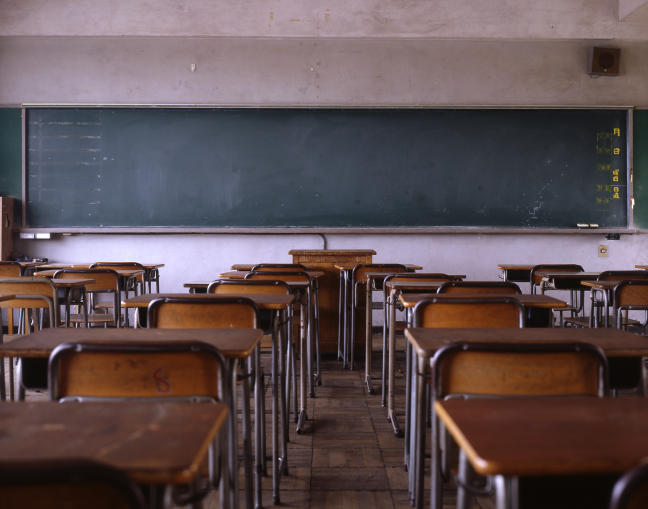In today’s world of heated politics, it can be hard to understand how to talk about controversial issues, but one book seeks to bring open debate and civil discourse to the classroom.
“The Political Classroom,” which won the American Educational Research Association’s Outstanding Book Award for 2016, was written by Paula McAvoy and Diana Hess to help teachers show students how to discuss diverse political perspectives.
McAvoy, program director for the Center for Ethics and Education, said deliberation and discussion about political issues in the classroom help students be open to other points of view. Understanding dissenting opinions as teenagers is important to creating a thriving democratic society.
“Ideally you’re not thinking about what is the best solution for me, but thinking about which way should we go if we care about the common good,” McAvoy said.
The Center for Ethics and Education is a collaboration of UW and University of Illinois-Chicago’s philosophy departments, UW Education Policy Studies and the Wisconsin Center for Education Research. The center uses tools from contemporary moral and political philosophy to solve problems in educational policy.
The study in the book is based on one of the largest democratic education studies in the nation. By looking at data from the study, McAvoy and Hess looked to determine how high school students learn when they discuss controversial topics in social studies courses and whether these discussions affected students’ political participation after high school.
Hess, Dean of UW’s School of Education, said the study combined quantitative and qualitative data by surveying, interviewing and observing participating students and teachers from Illinois, Indiana and Wisconsin. More than 1,000 students from diverse backgrounds participated in the study.
CV Vitolo, UW Debate Club debate director, said students commonly develop their political view based on their parent’s beliefs. Vitolo said if students talk about these personal beliefs in their high school classes, they can better understand why they support certain stances before they get to college.
Most classrooms had students that agreed with both sides of the aisle, McAvoy said, but some classrooms were politically homogenous.
UW researchers study why well-informed people have more polarized views
The polarization seen in the classrooms reflects polarization throughout the country, McAvoy said. To foster a society that understands opposing viewpoints, it is important to teach kids early on how to think critically about issues that are facing the county today so they can actively participate in democracy after school.
For the classrooms that leaned to one political stance, the challenge was to help the students understand other viewpoints, McAvoy said. For the classrooms that had a balance of perspectives, it was important to provide students a structured discussion.
“The teachers don’t want things to get so ideologically heated that people can’t discuss with each other,” McAvoy said.
Some teachers try to stay away from discussing controversial political topics out of fear of being misunderstood as biased, McAvoy said. In order to prevent misunderstanding, teachers need to make sure these discussions are structured in a way that promotes civil conversation. This can be achieved by teaching students about different perspectives on the topic before the discussion.
Vitolo said discussion about political topics is especially important during a presidential election dominated by “half-truths,” like 2016’s.
When facts are in dispute, it can be hard to get students on the same page, McAvoy said. When students have a teacher to guide them through difficult topics, students are able to get past the strong rhetoric of political candidates and focus on policy decisions.
McAvoy said promoting structured conversation is important when talking about controversial topics. As the current presidential election exemplifies, a controversial conversation can become negative if there is not structure.
Hess said schools are nonpartisan places but can teach students to be politically active. Teaching democracy in schools has long been one of the reasons why there are public schools in America, Hess said.
“You can teach students to talk about an issue that is highly partisan, but you can do that in a way that’s fair and not partisan,” Hess said.
Schools, Hess added, often serve as a place for students to develop the structure to talk about their own political views later in life.
To help today’s students develop critical thinking skills, schools need to promote healthy conversations about the political issues that will impact the future of our county, McAvoy said. By having a space to talk about controversial topics, teachers can give students the tools they need to discuss and deliberate with one another.
“We need to support teachers when they want to bring politics into the classroom,” McAvoy said. “We need to get good materials to teachers so they feel comfortable taking these things on.”
















